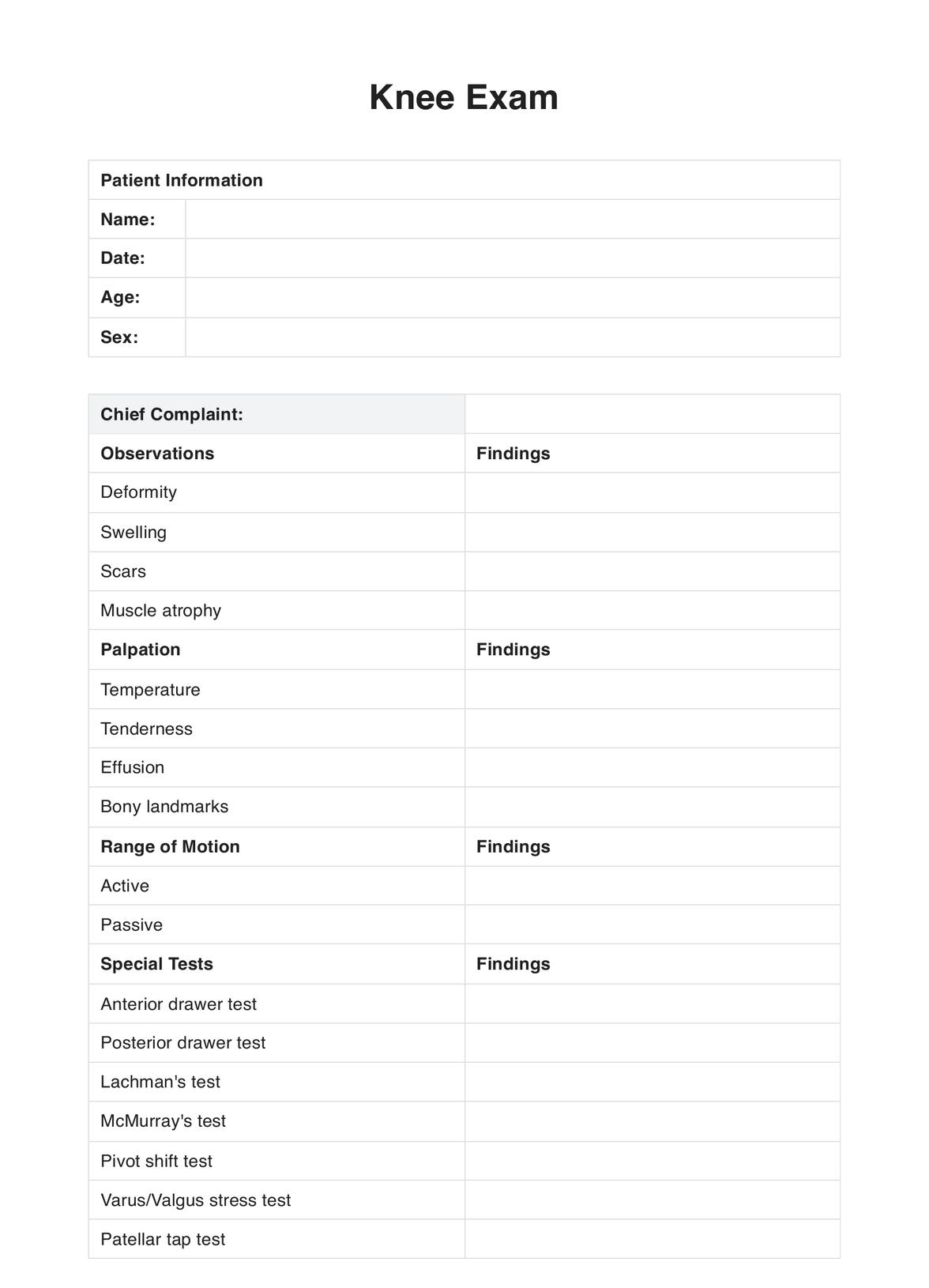Absolutely! Our knee exam template is designed to be intuitive and easy to use, regardless of your technological proficiency. It provides a structured format for conducting thorough knee examinations.

Knee Exams
Learn about knee exams, get a free comprehensive template, and discover why Carepatron is the best Knee Exam App. Download our PDF today!
Use Template
Knee Exams Template
Commonly asked questions
Yes, you can. The template is versatile and can be utilized in various settings, including telehealth consultations. You can easily share your findings with patients, fostering transparency.
Indeed. The knee exam template incorporates the latest research and evidence-based practices, ensuring your exam is comprehensive and up-to-date.
EHR and practice management software
Get started for free
*No credit card required
Free
$0/usd
Unlimited clients
Telehealth
1GB of storage
Client portal text
Automated billing and online payments











